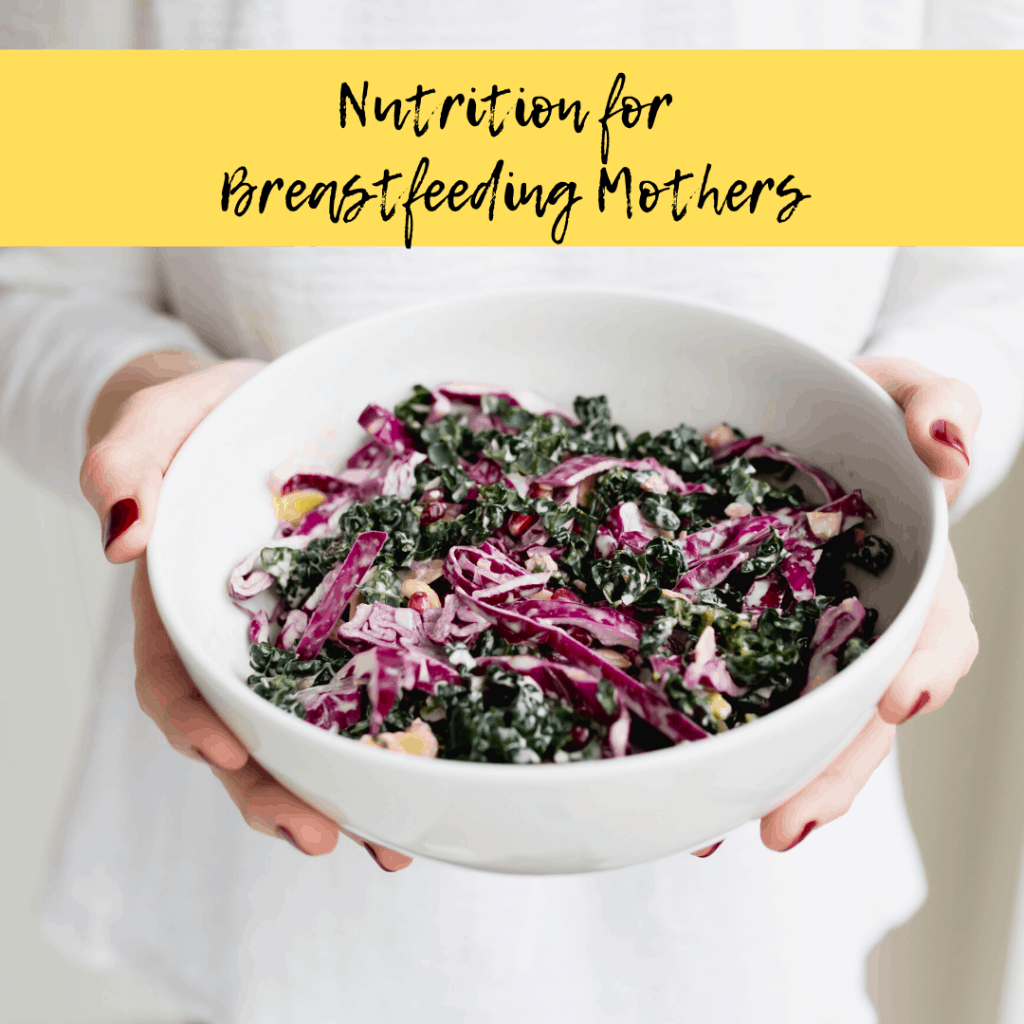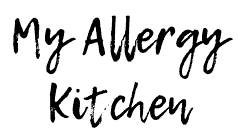Today's guest post is written by Healthy Eating Doctor, Harriet Holme. She is a qualified and experienced paediatrician as well as being a registered nutritionst. She also breastfed both of her babies with Cows Milk Protein Allergy. Today she shares with us her top tips for postnatal nutrition for breastfeeding mothers.
Eating well while breastfeeding can be really challenging with a new-born to take care of and a shortage of sleep. Even more so if you have an active toddler to contend with during the day as well. However, making sure that you are eating well can not only help your energy levels, but also your milk supply too. Breastfeeding mums need approximately 400-500 extra calories each day while they are breastfeeding.

For mums of babies with allergies, having a diet with restrictions can be a barrier to getting enough of the nutrients you need, and you need to be more mindful of what you are eating. This is especially important for mums who need to exclude dairy and / or eggs. Both my children had Cow’s Milk Protein Allergy (CMPA), and in the 2.5 years between them, I saw an explosion of dairy free products on the market and every local coffee shop had plant based milk. Restaurants now need allergen menus, so it is easier to eat out, with lots of supermarkets even having their own plant based milks. Nutrition for breastfeeding mothers is so important - see below for my tips on how to ensure you are meeting your micronutrient needs.
Smoothies can also be a great way of getting calories and nutrients in quickly, and are better than juices, as they contain more of the soluble and insoluble fibre which is so good your gut.
Batch cooking can be a good way of filling your fridge and freezer with lots of nutritious meals that are ready to reheat. Lots of mums find they are especially hungry while breastfeeding, and so it’s a good idea to have lots of healthy snacks to hand, for when temptation strikes!
I love plant based snacks from Pep and Lekker (use 5MHEANB for 10% off), Spare Snacks made from wonky fruit and vegetables, and Ape Coconut bites.
Postnatal Nutrition for Breastfeeding Mothers
My top tips for optimising your nutrition after a baby are:
- Vitamin D is vital for optimal functioning of 20% of our genes and most people can’t make enough from sunshine alone all year around in the UK, which is why I generally recommend taking a Vitamin D supplement. I like the Better You vitamin D spray.
- Eat wholegrain foods such as brown pasta, bread and rice.
- Eat at least 5 portions of fruit and vegetables per day.
- Aim for a fibre intake of 30g. This is especially important immediately after giving birth when going to the toilet can be tricky. Enrich your diet with extra dried fruit, beans, and lentils, in addition to fruit, vegetables and whole grain carbohydrates.
- Remember to include foods rich in calcium in your diet, either dairy products, or non-dairy such as tofu, pulses, dried fruit, and fish that have edible bones, such as sardines, or tinned salmon are a great source of calcium. Calcium is especially important if your baby has Cow’s Milk Protein Allergy (CMPA) and you need to exclude dairy. When you choose a plant based milk, ensure that it has added calcium. I’ve written a blog about how to choose a dairy free milk, and the nutrients in each of the main ones found in the supermarkets.
- Iodine is another important micronutrient that until recently has been largely thought to be sufficient in our diets. However, research has raised concerns that pregnant and breastfeeding women are at risk of deficiency. Dairy products and fish are iodine rich foods, so people following a vegan diet are at risk of iodine deficiency. If you are excluding dairy from your diet, a number of the plant based milks have just started to supplement with iodine as well as calcium, which I talk about in my Plant Based Milk Blog. Depending on your life stage, people need different amounts of iodine per day.
- Children 1-8years need 90 mcg
- Children 9-13 years need 120 mcg
- Teenagers 14-18 years and adults need 150mcg
- Pregnant and breastfeeding women need 200 mcg
- Selenium is a micronutrient that doesn’t often make the headlines, but it is important for your thyroid to work properly and fatigue can be a sign of deficiency. Breastfeeding mothers and pregnant women need the highest levels of 60 -70mcg per day. Foods rich in selenium are meat (organs more than muscles), fish, eggs and whole grains, but brazil nuts have a huge amount compared with other foods, with just one nut providing your daily requirement of selenium.
- Drink plenty of fluids – avoid caffeine, and sugary drinks instead choose water. There are lots of ways of making water more interesting. For example, you can add herbs like verbena or slithers of vegetables such as cucumber.
- Aim for a diet rich in Omega 3 from seeds, nuts, seaweed and oily fish. Consider taking a high quality supplement.
- Ensure you are eating healthy mono-unsaturated fats such as those found in avocados, nuts and extra virgin olive oil. Have a handful of mixed nuts per day.
I studied medicine at the University of Cambridge, and have over a decade of experience in academic clinical practice as a paediatrician. Additionally I have a PhD in genetics, and use these uniquely developed scientific and clinical skills for the benefit of my private clients and students, exclusively consulting as a Registered Nutritionist (Associate of Nutrition) and lecturing in culinary science and nutrition.
Follow me @healthyeatingdr for more evidence based nutrition facts, including nutrition for breastfeeding mothers, and see my website for more information about me and the services I offer www.healthyeatingdr.com .



Leave a Reply